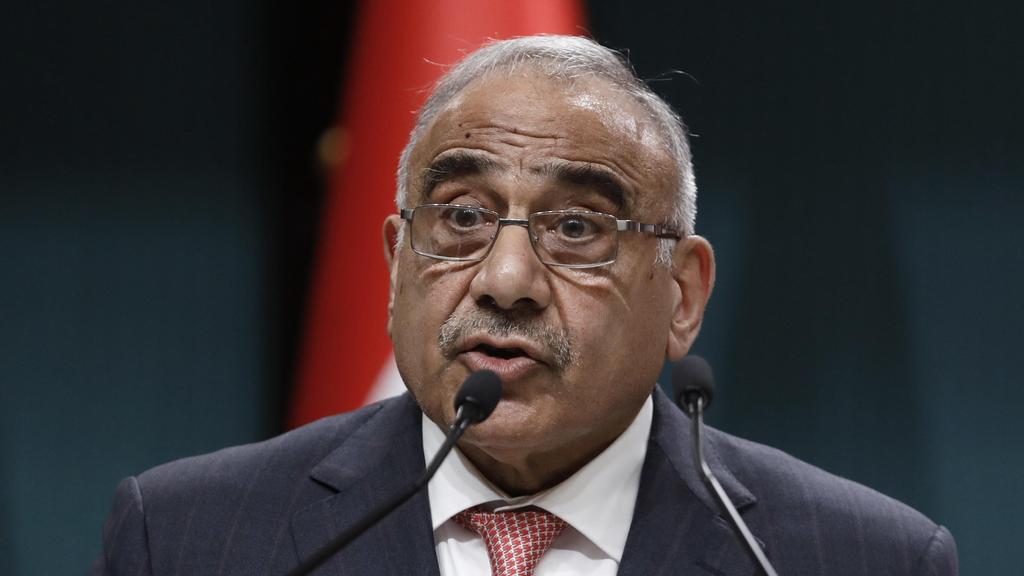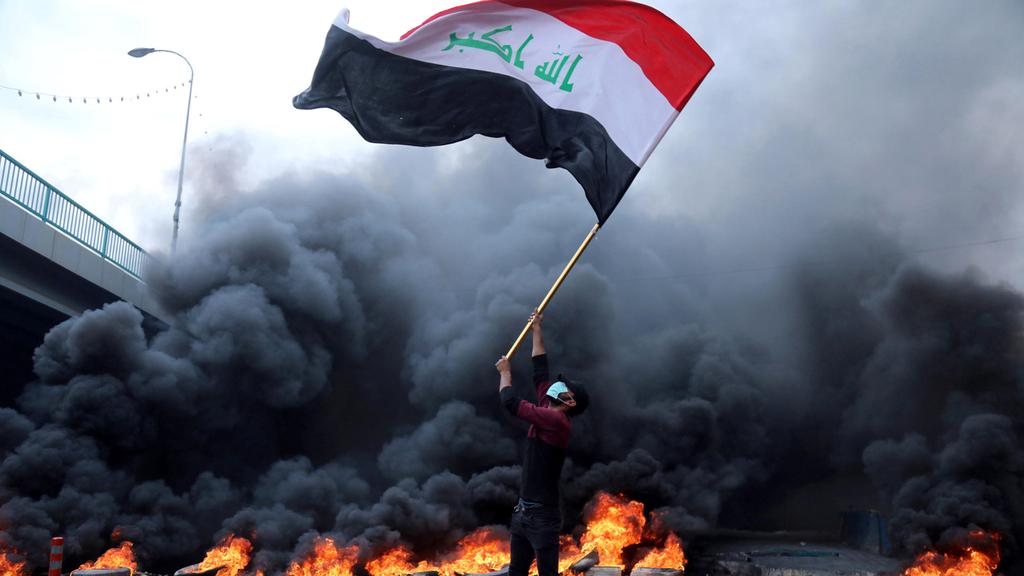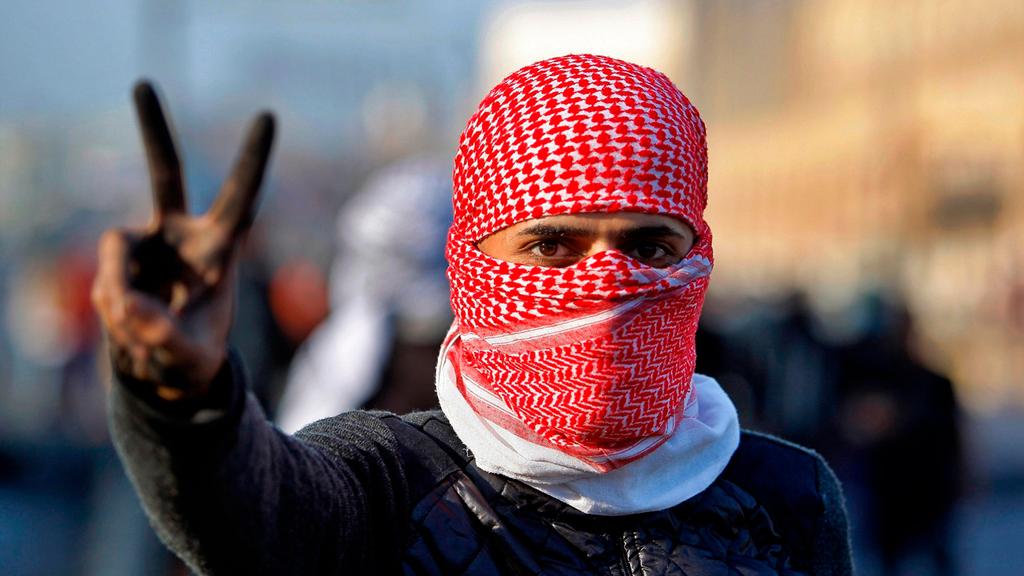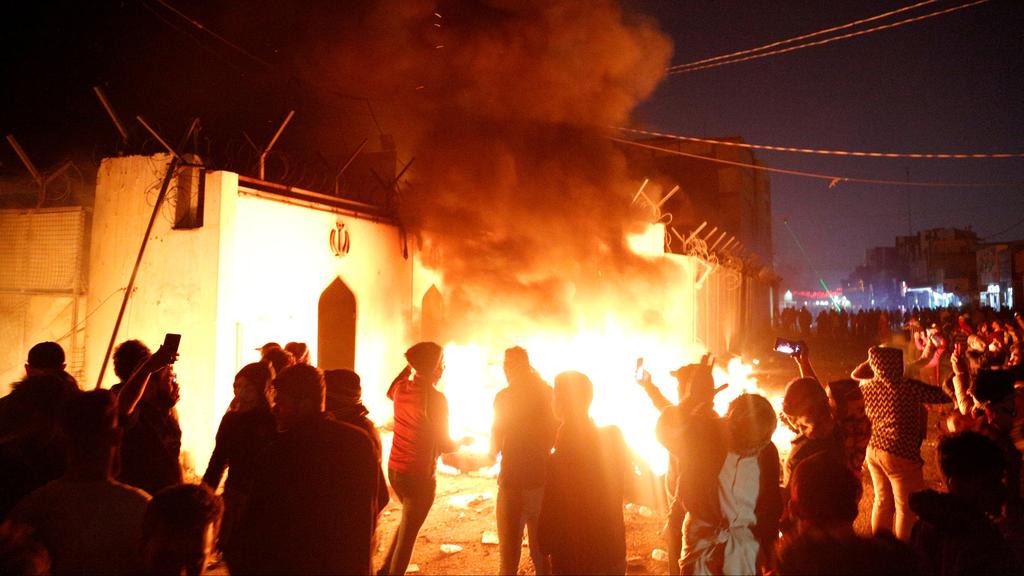Iraq's prime minister said Friday he would submit his resignation to parliament, a day after more than 40 people were killed by security forces and following calls by Iraq's top Shiite cleric for lawmakers to withdraw support.
The move by Adel Abdul-Mahdi 13 months after he took over as prime minister triggered celebrations by anti-government protesters who have been camped out in Baghdad's Tahrir Square for nearly two months.
Young men and women broke out in song and dance as news of his imminent resignation reached the square, the capital's largest.
In a statement, Abdul-Mahdi said he had "listened with great concern" to Grand Ayatollah Ali al-Sistani's sermon and made his decision in response to his call and in order to "facilitate and hasten its fulfillment as soon as possible."
"I will submit to parliament an official memorandum resigning from the current prime ministry so that the parliament can review its choices," he said. Abdul-Mahdi was appointed prime minister just over a year ago as a consensus candidate between political blocs.
Al-Sistani said parliament, which elected the government of Abdul-Mahdi, should "reconsider its options" in his weekly Friday sermon delivered in the holy city of Najaf via a representative.
"We call upon the House of Representatives from which this current government emerged to reconsider its options in that regard," al-Sistani said in the statement -- a clear sign he was withdrawing his support for the prime minister.
It wasn't immediately clear whether Abdul-Mahdi's resignation would placate protesters, who are now calling for the removal of the entire political class that has ruled Iraq since the 2003 downfall of Saddam Hussein.
Nearly 400 people have been killed in the bloody crackdown on protests since Oct. 1, most of them young protesters shot dead or killed by exploding tear gas canisters fired by security forces.
Amira, a 25-year-old protester, said the resignation should have come many weeks ago.
"We will not stop with the prime minister, we still have more fighting to do. We will push forward until our demands are met," she said, declining to give her full name, fearing retaliation.
Forty protesters were shot dead by security forces in Baghdad and the southern cities of Najaf and Nasiriyah on Thursday, in a sharp escalation of violence that continued Friday. Najaf is the headquarters of the country's Shiite religious authority headed by al-Sistani.
Three more protesters were shot and eight wounded by security forces in Nasiriyah on Friday when the demonstrators attempted to enter the city center to resume their sit-in, security and hospital officials said.
Security forces had fired live rounds the previous day to disperse protesters from two key bridges, killing 31 people.
Al-Sistani also said protesters should distinguish between peaceful demonstrators and those seeking to turn the movement violent, following the burning of an Iranian consulate building in Najaf on Wednesday that government officials say was perpetrated by saboteurs from outside the protest movement.
The Islamic Dawa party called for parliament to convene immediately and choose an alternative government, in a statement.
A former oil and finance minister and an ex-vice president, the 77-year-old Abdul-Mahdi was seen as a political independent when he took the post in October 2018 and is Iraq's first prime minister from outside the Dawa party in 12 years.
He moved his offices out of Baghdad's highly secure Green Zone on the first day of his term, saying he wanted to bring his government closer to the people, and said he wanted to provide security, water and electricity for all Iraqis during his term.
But reality soon caught up as he faced a raft of challenges including high unemployment, widespread corruption and dilapidated public services. His government and key staffers in his office were also seen to be close to Iran.
In Baghdad, protesters gathered around the historic Rasheed Street near the strategic Ahrar Bridge and burned the Iranian flag, chanting "Iran out!"
Four people were shot by security forces on the bridge the previous day. Protesters are also occupying parts of the nearby bridges Jumhuriya and Sinar -- all of which lead to the fortified Green Zone, the seat of Iraq's government.
A spokesman for the UN secretary-general expressed deep concern over the use of live ammunition against protesters on Friday.
"The Secretary-General reiterates his call on the Iraqi authorities to exercise maximum restraint, protect the lives of demonstrators, respect the rights to freedom of expression and assembly, and swiftly to investigate all acts of violence," said Stephane Dujarric, in a statement.





